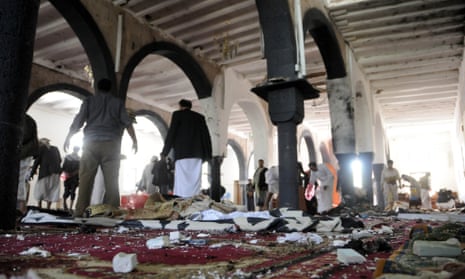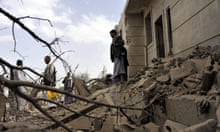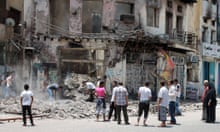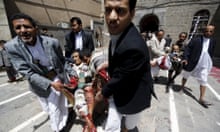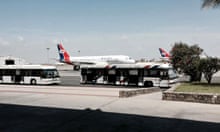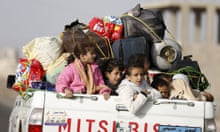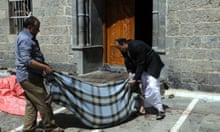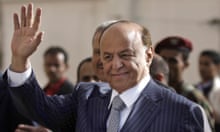Suicide bombings that killed at least 142 people were aimed at dragging Yemen into “chaos, violence and internal fighting”, the country’s embattled president has said.
The series of coordinated attacks on mosques in Sana’a during Friday prayers, by a group claiming to be a Yemeni branch of Islamic State, also left 345 people injured, with the death toll including 13 children.
The militants said five suicide bombers had carried out a “blessed operation” against the “dens of the Shia”. The Badr and al-Hashoosh mosques were hit when they were filled with worshippers.
President Abedrabbo Mansour Hadi took refuge in the southern port city of Aden last month, after escaping house arrest in the Shia Houthi-controlled capital.
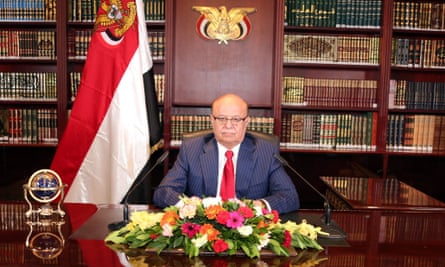
In a letter to the families of those killed and injured in the attacks, Hadi condemned the attacks as “terrorist, criminal and cowardly”.
“Such heinous attacks could only be done by the enemies of life” who wanted to drag Yemen into “chaos, violence and internal fighting”, Hadi wrote in the letter, which was released by his office.
“[Shia] extremism, represented by the armed Houthi militia, and Sunni extremism, represented by al-Qaida, are two sides of the same coin, who do not wish good and stability for Yemen and its people.”
The Houthis seized Sana’a in September and have since tightened their grip on government installations, aided by forces loyal to the former president Ali Abdullah Saleh. However, a push to widen their control zone to the south faced fierce resistance from Sunni tribes allied with al-Qaida, which is the most prominent jihadi organisation in Yemen.
The killings were the first claimed by Isis in Yemen and represent a strong show of force by the group. Al-Qaida distanced itself from Friday’s bombings, insisting it does not target mosques.
UN security council president François Delattre said its members “condemned in the strongest terms” the attacks.
Yemen has been moving towards civil war since last year, when the Houthis advanced from their northern heartland, undermining the country’s tenuous internal security and creating more space in which al-Qaida can operate.
Meanwhile, al-Qaida fighters captured al-Houta, the capital of Lahj province in southern Yemen late on Friday, killing about 20 soldiers.
The militants held the city for several hours before being driven out by two army brigades.
Al-Houta is only 20 miles (30km) from Aden, where Hadi has temporarily based the government since fleeing Sana’a.
